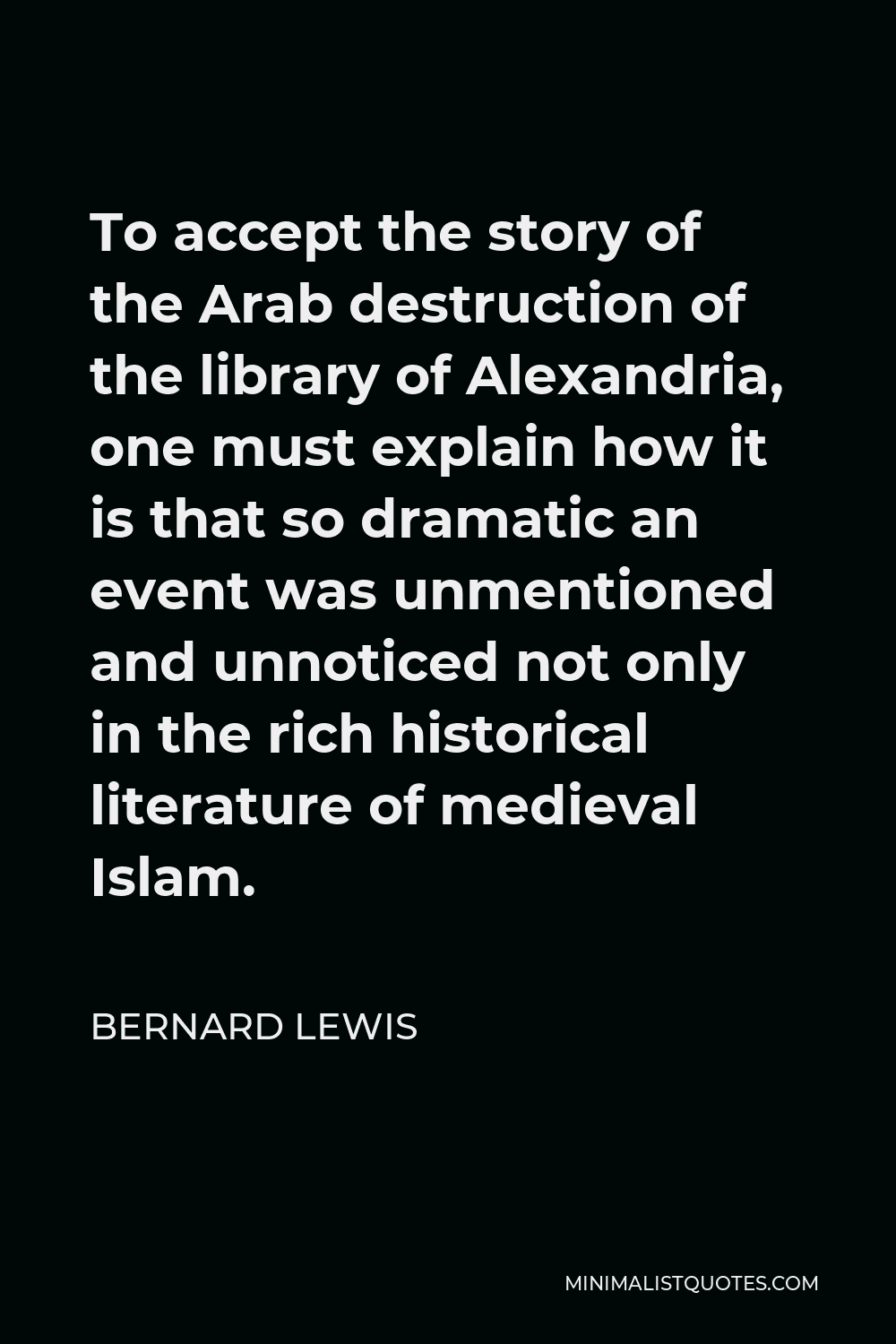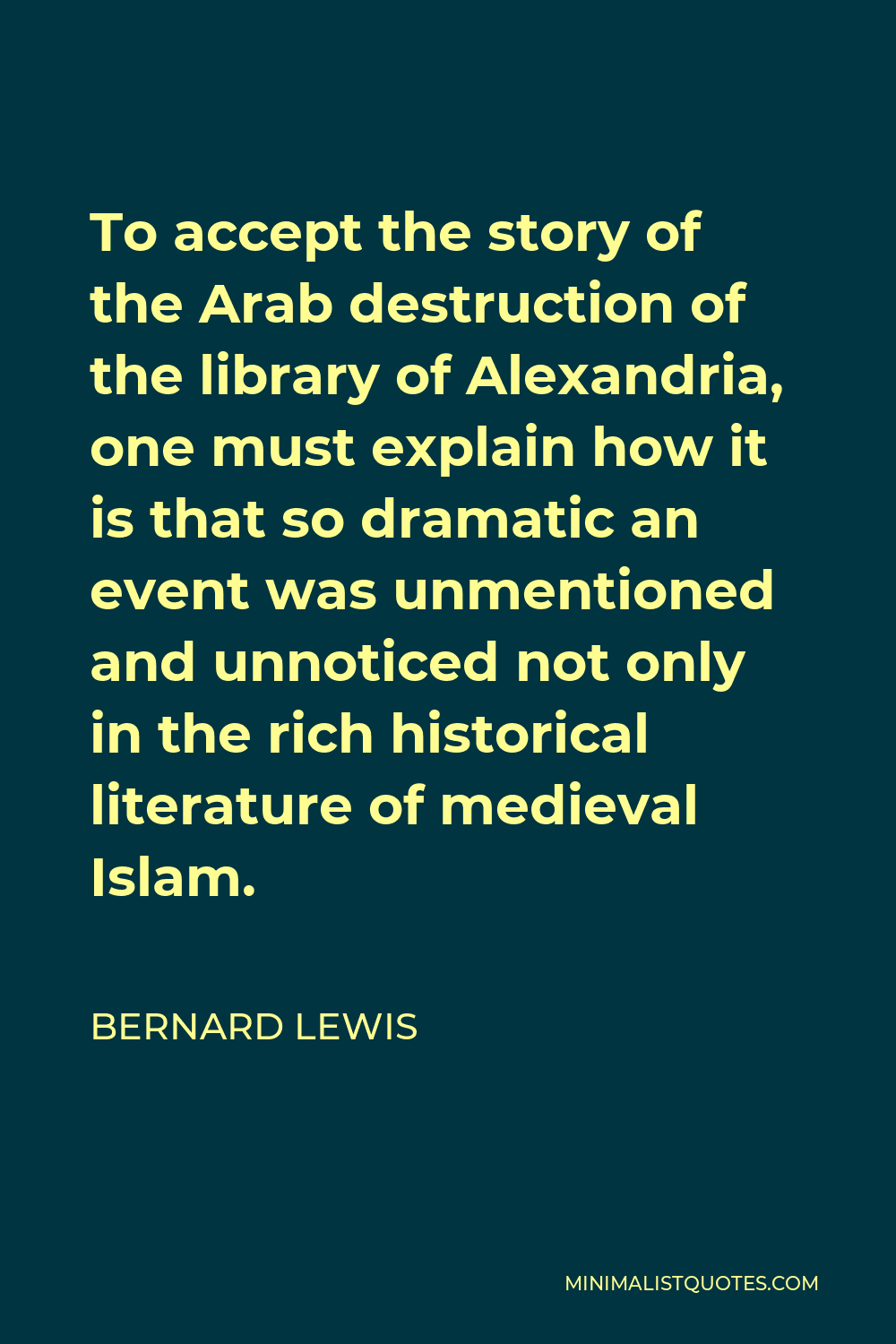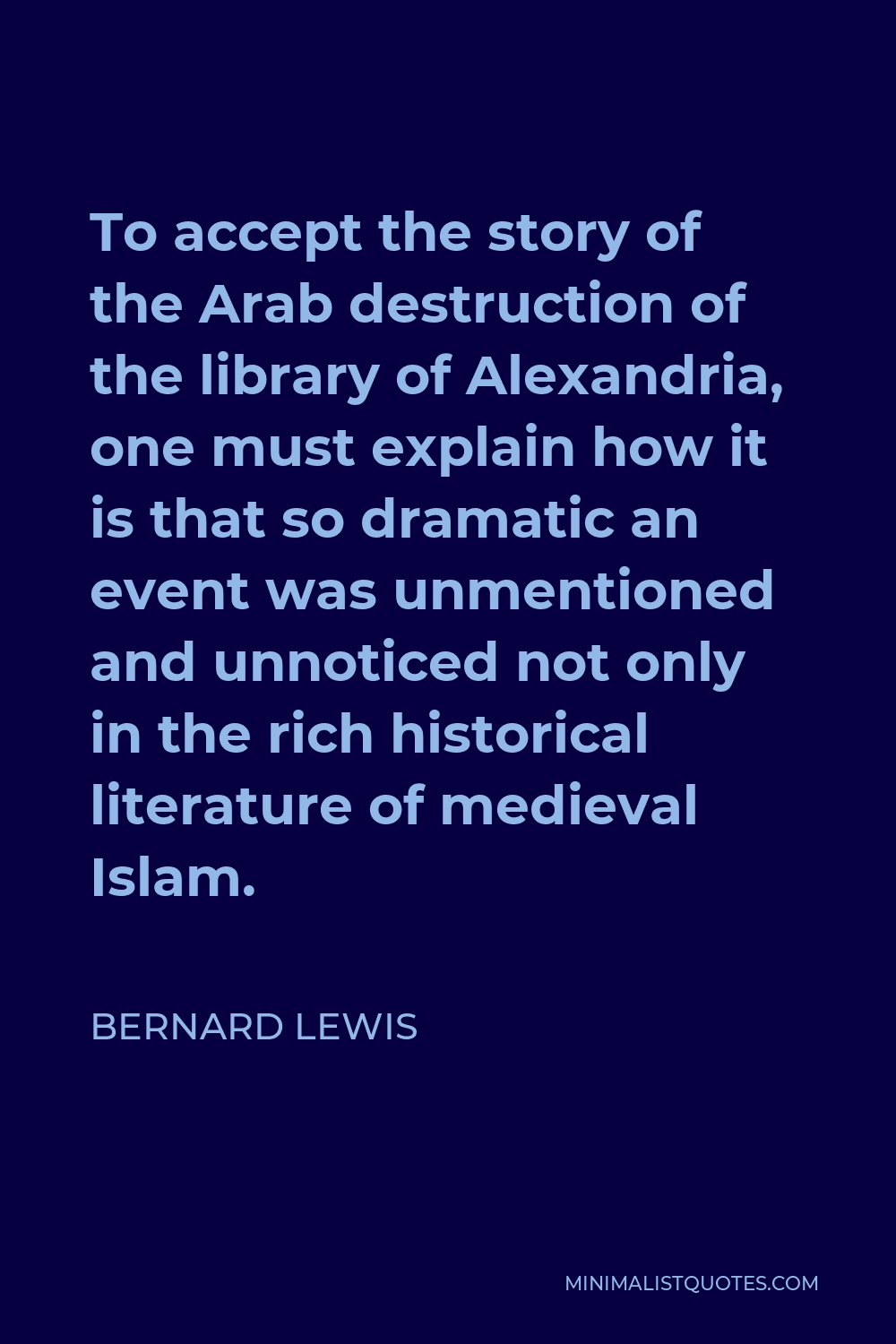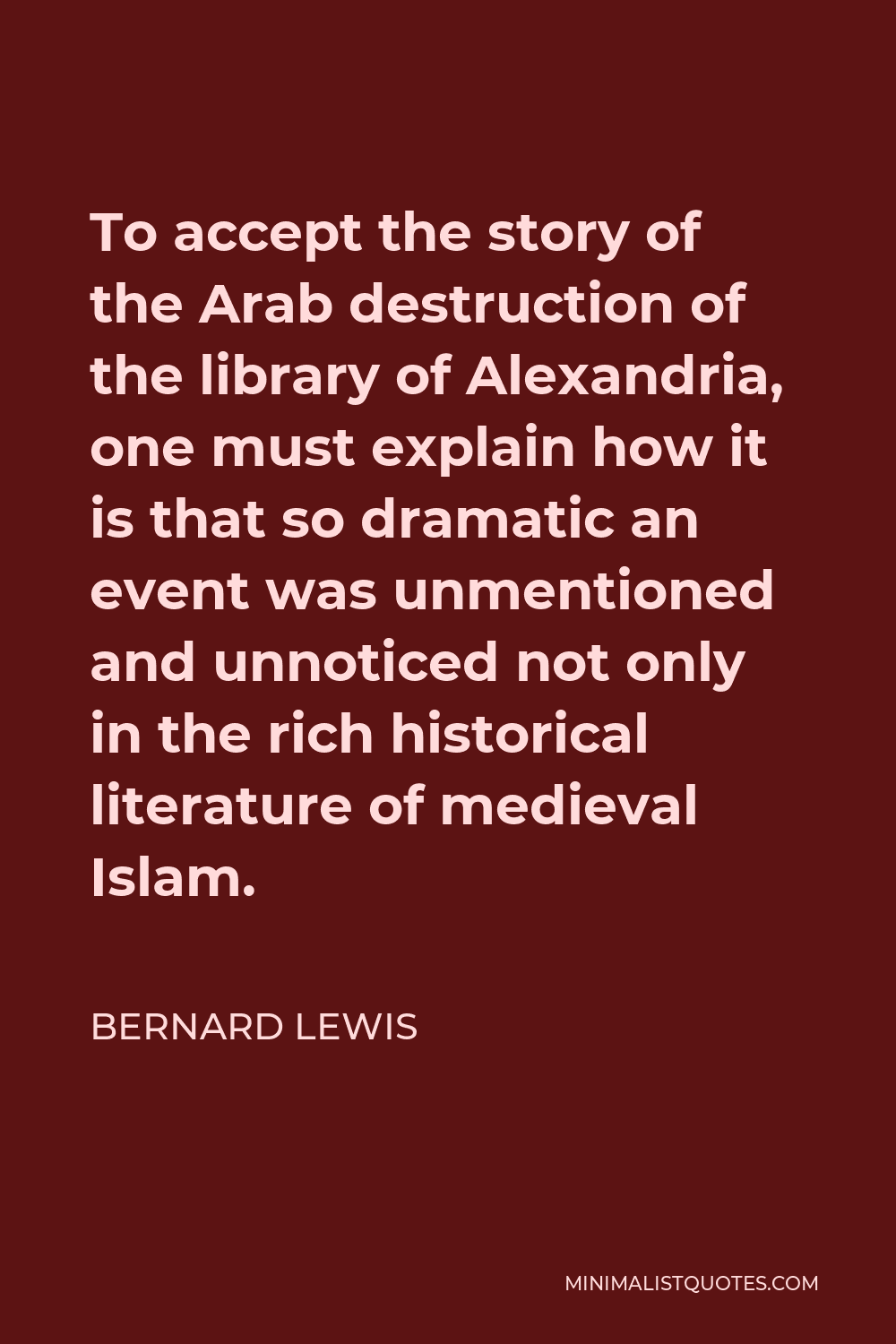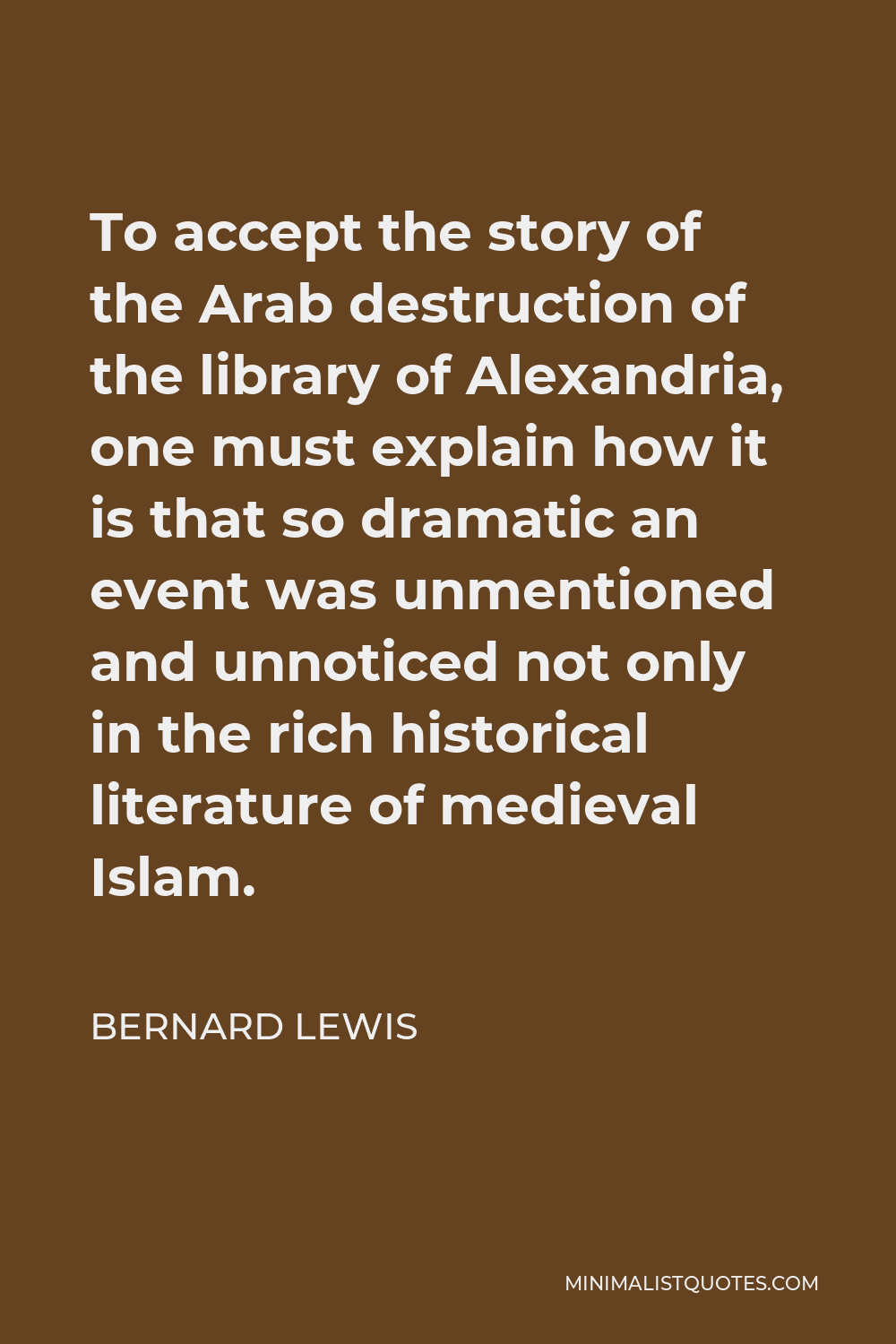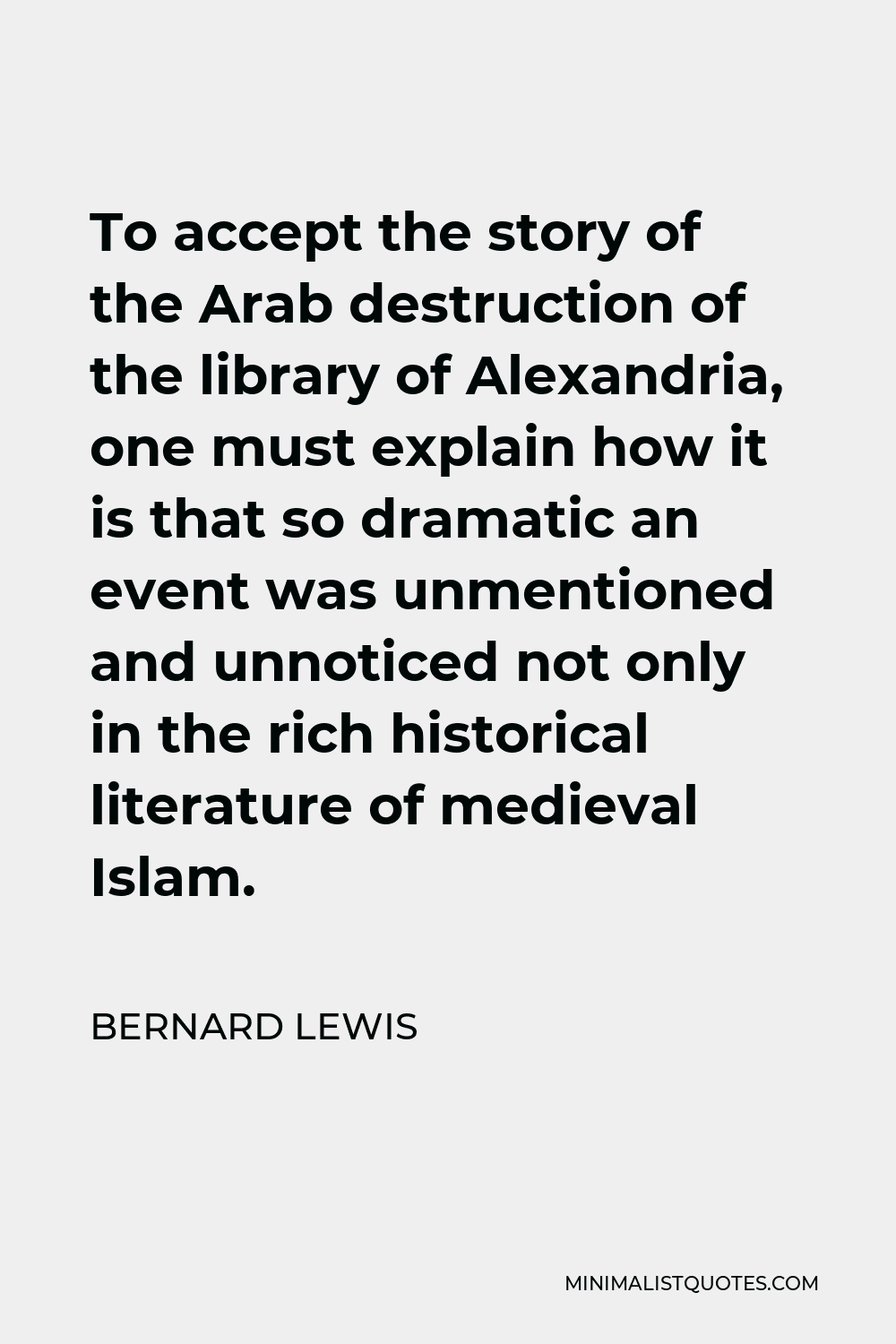So there is a long struggle between the Dar al-Islam and the Dar al-Harb, which in effect was Christendom. This was the perceived enemy. And this has inevitably colored the perception of everything else.
BERNARD LEWISTo accept the story of the Arab destruction of the library of Alexandria, one must explain how it is that so dramatic an event was unmentioned and unnoticed not only in the rich historical literature of medieval Islam.
More Bernard Lewis Quotes
-





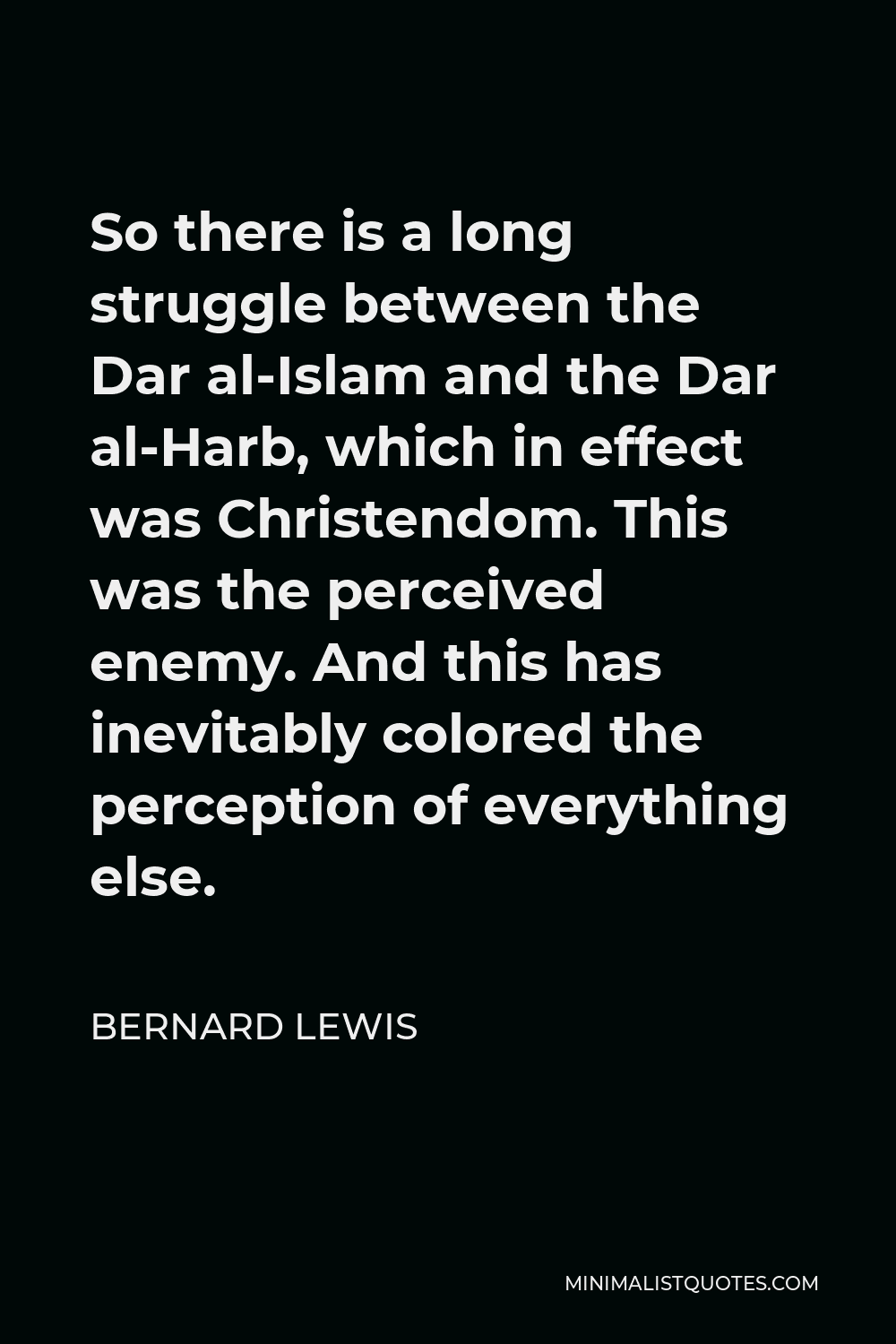
-





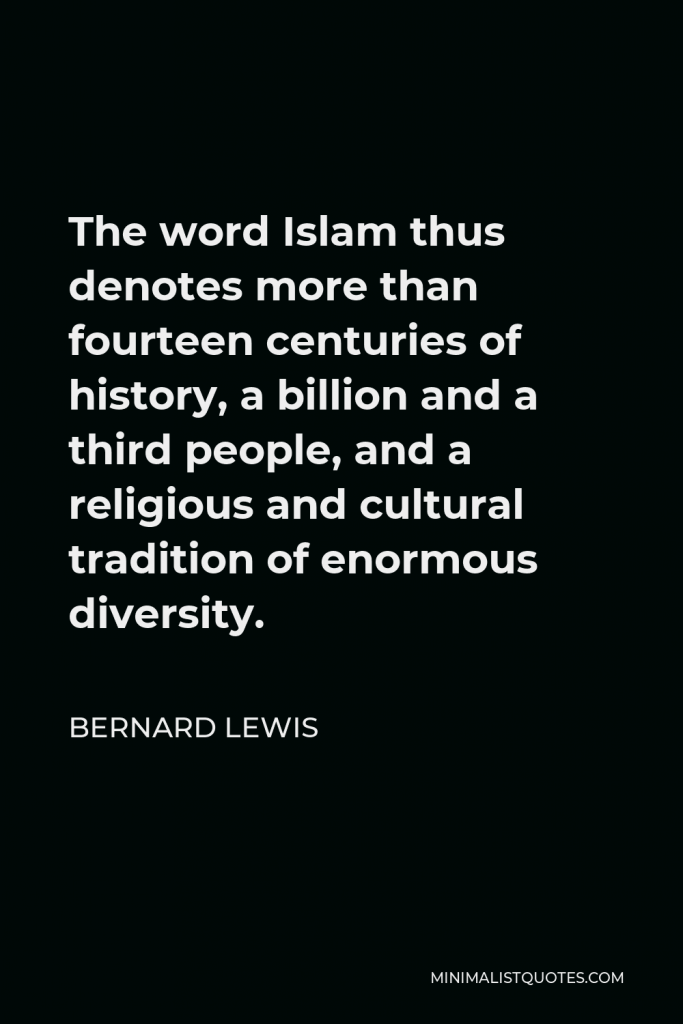

The word Islam thus denotes more than fourteen centuries of history, a billion and a third people, and a religious and cultural tradition of enormous diversity.
BERNARD LEWIS -





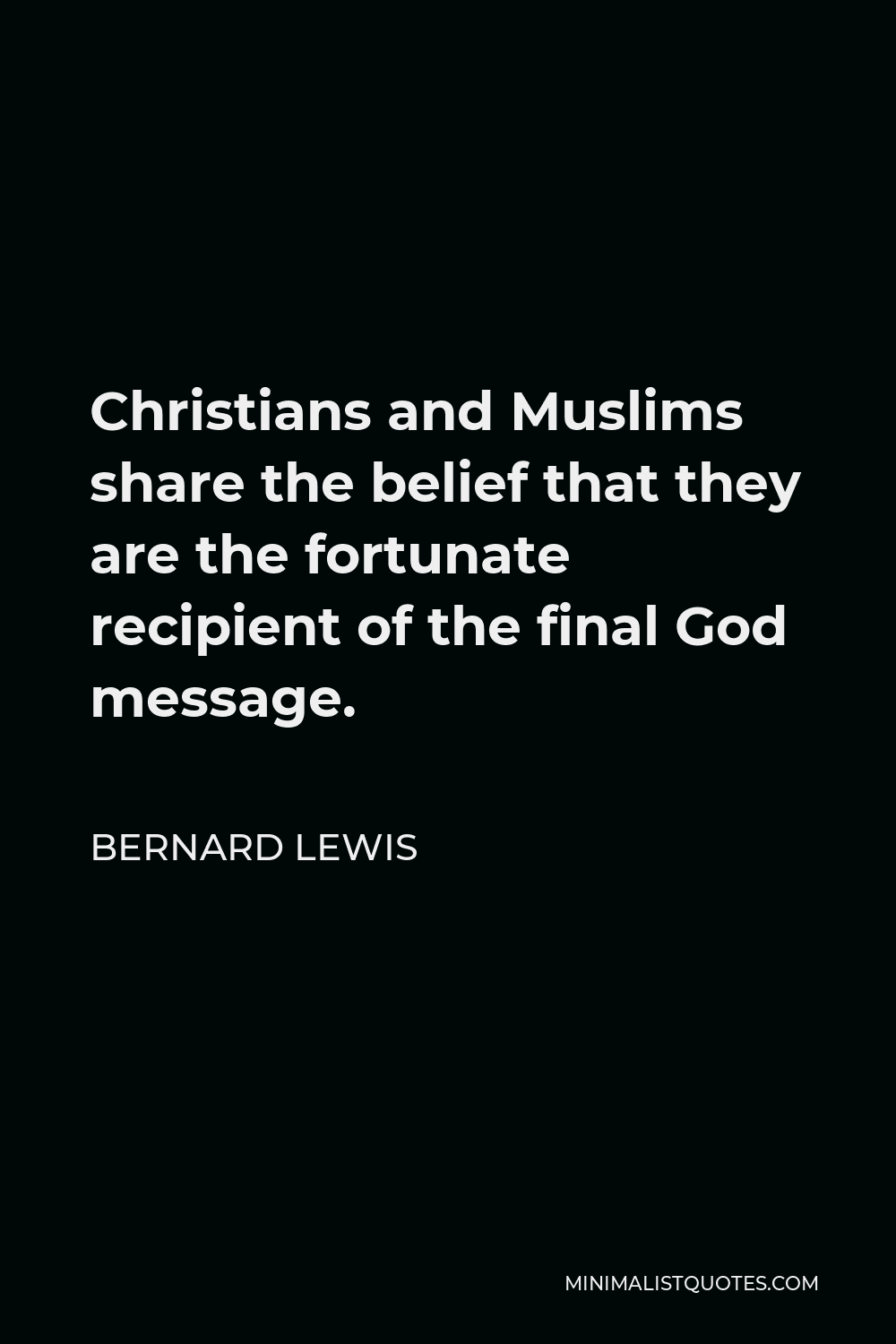
Christians and Muslims share the belief that they are the fortunate recipient of the final God message.
BERNARD LEWIS -





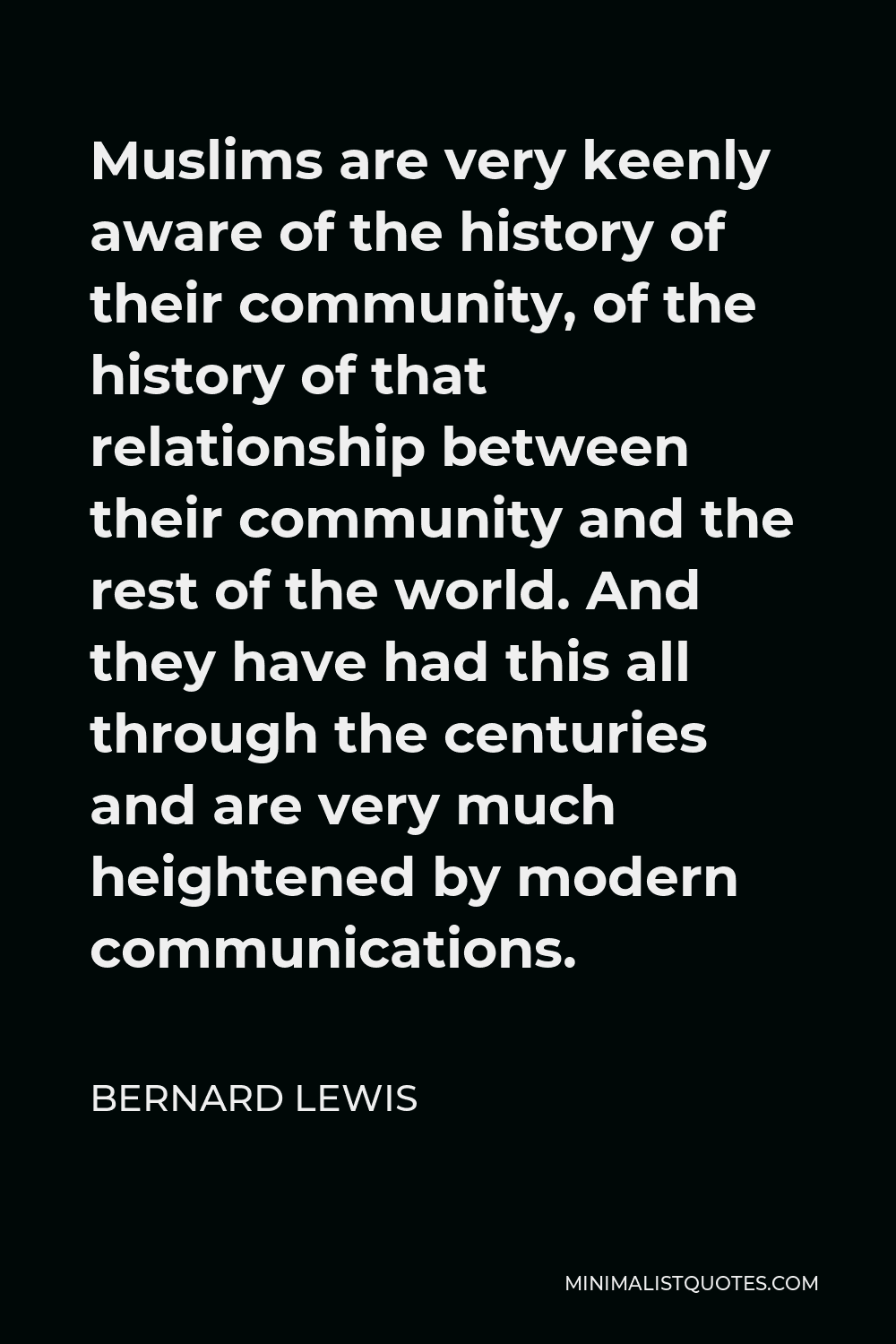
Muslims are very keenly aware of the history of their community, of the history of that relationship between their community and the rest of the world. And they have had this all through the centuries and are very much heightened by modern communications.
BERNARD LEWIS -





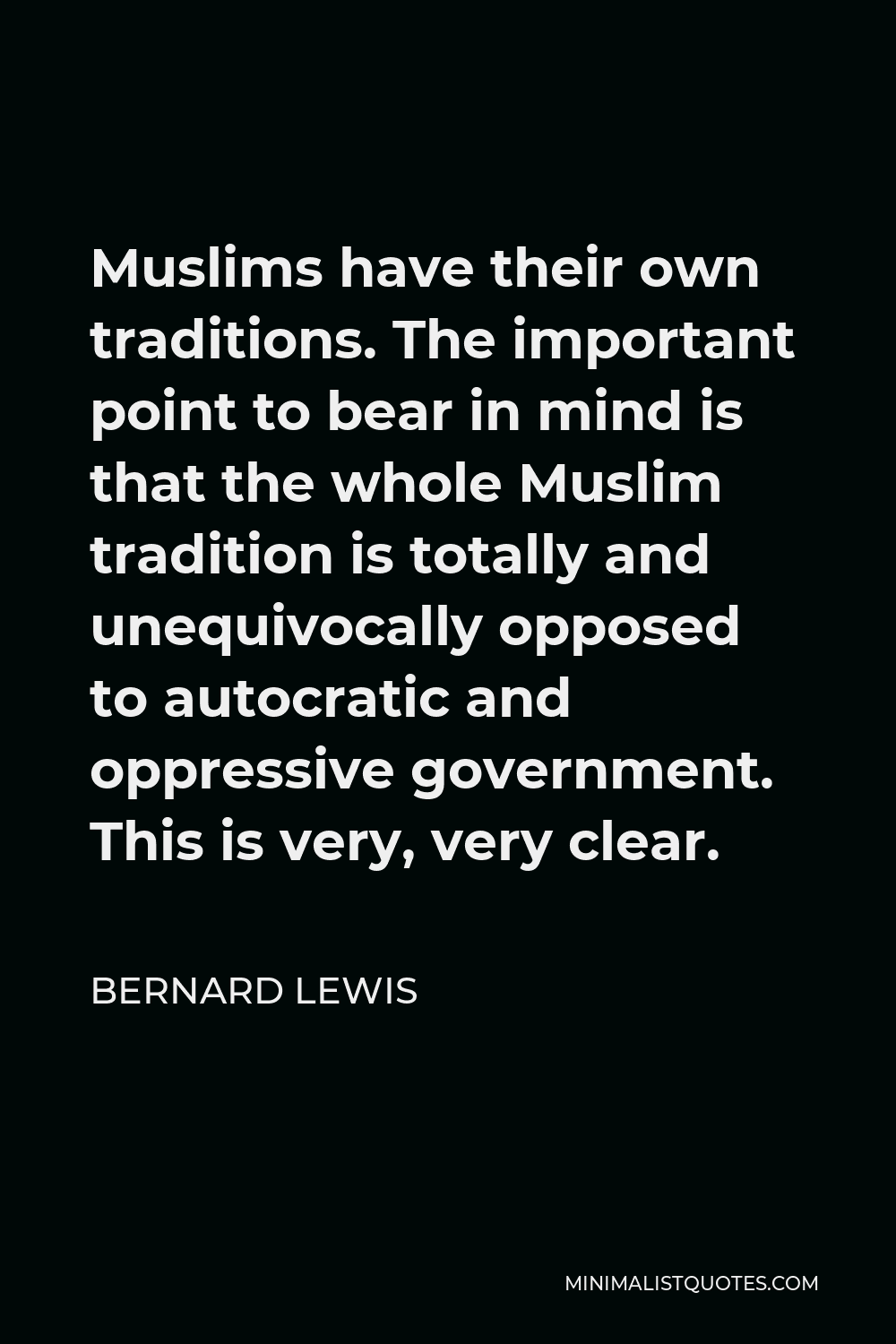
Muslims have their own traditions. The important point to bear in mind is that the whole Muslim tradition is totally and unequivocally opposed to autocratic and oppressive government. This is very, very clear.
BERNARD LEWIS -





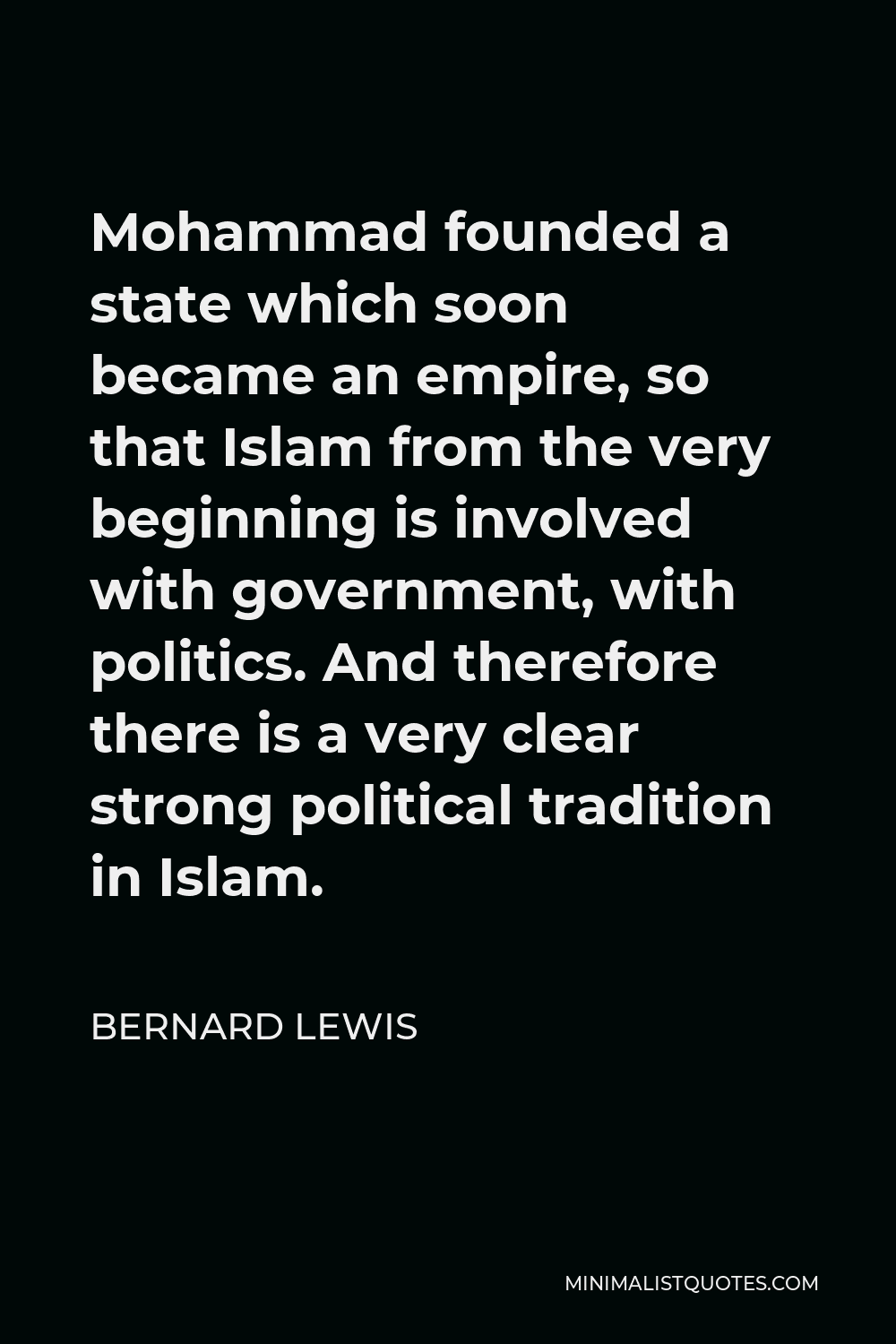
Mohammad founded a state which soon became an empire, so that Islam from the very beginning is involved with government, with politics. And therefore there is a very clear strong political tradition in Islam.
BERNARD LEWIS -





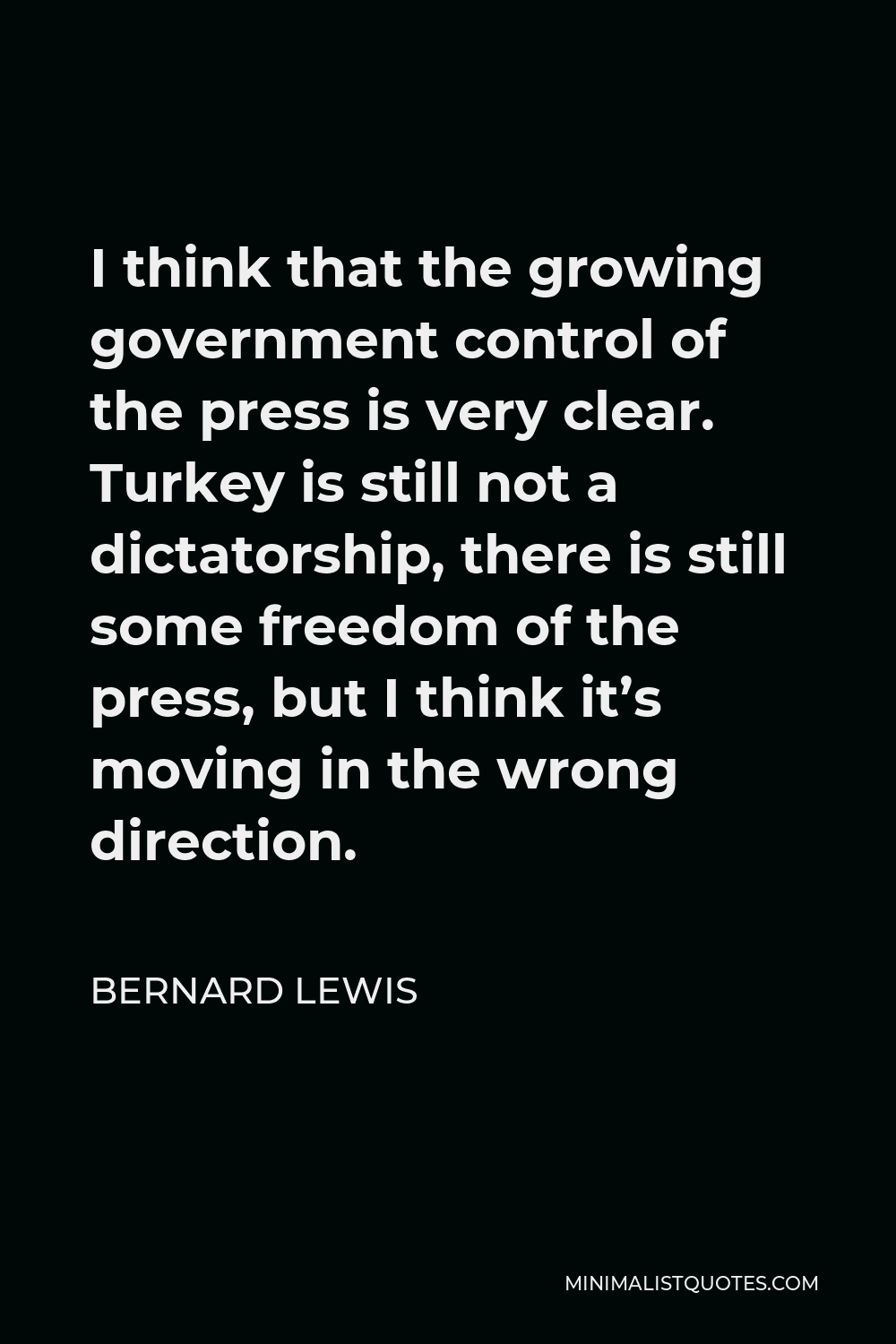
I think that the growing government control of the press is very clear. Turkey is still not a dictatorship, there is still some freedom of the press, but I think it’s moving in the wrong direction.
BERNARD LEWIS -





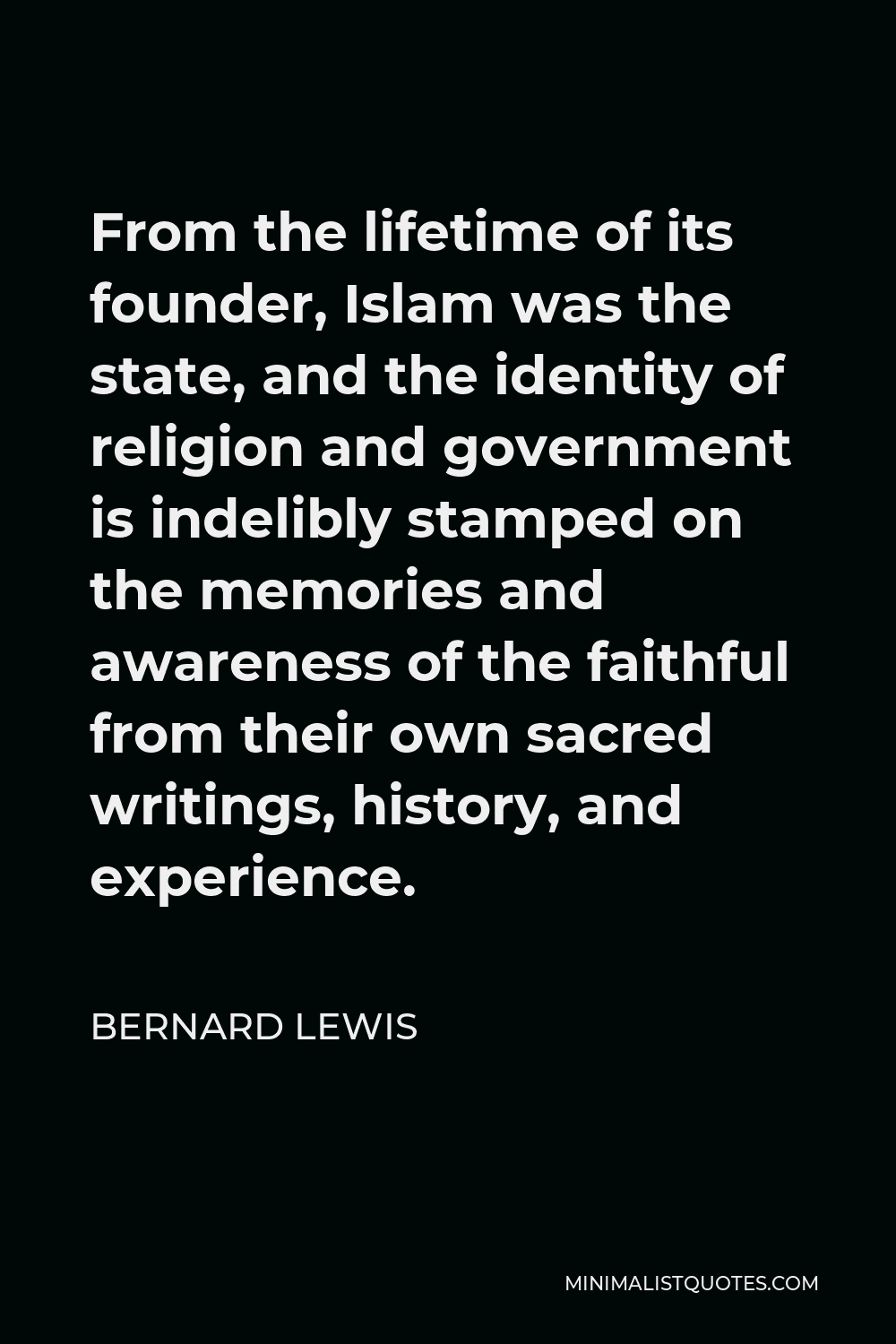
From the lifetime of its founder, Islam was the state, and the identity of religion and government is indelibly stamped on the memories and awareness of the faithful from their own sacred writings, history, and experience.
BERNARD LEWIS -





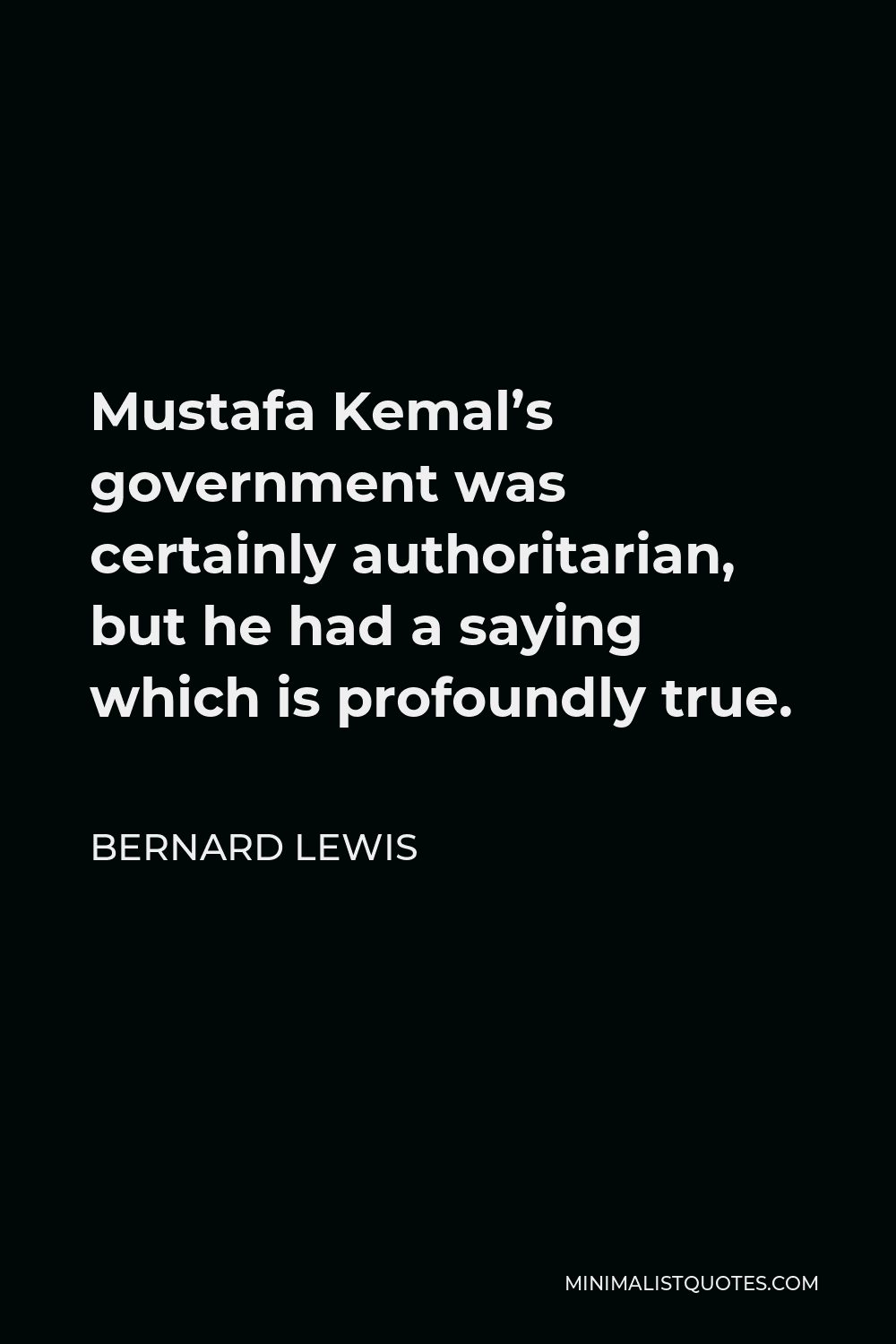
Mustafa Kemal’s government was certainly authoritarian, but he had a saying which is profoundly true.
BERNARD LEWIS -





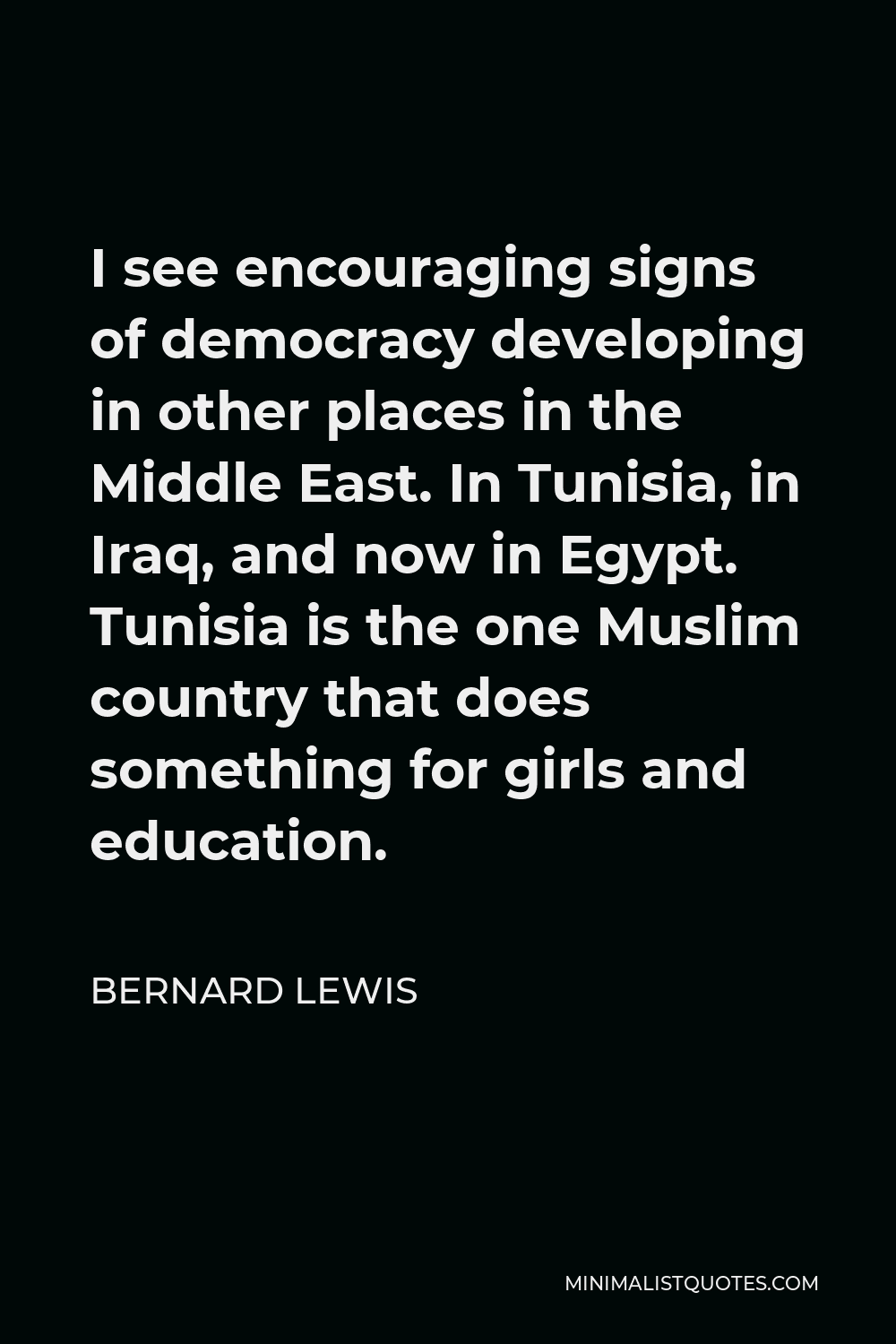
I see encouraging signs of democracy developing in other places in the Middle East. In Tunisia, in Iraq, and now in Egypt. Tunisia is the one Muslim country that does something for girls and education.
BERNARD LEWIS -





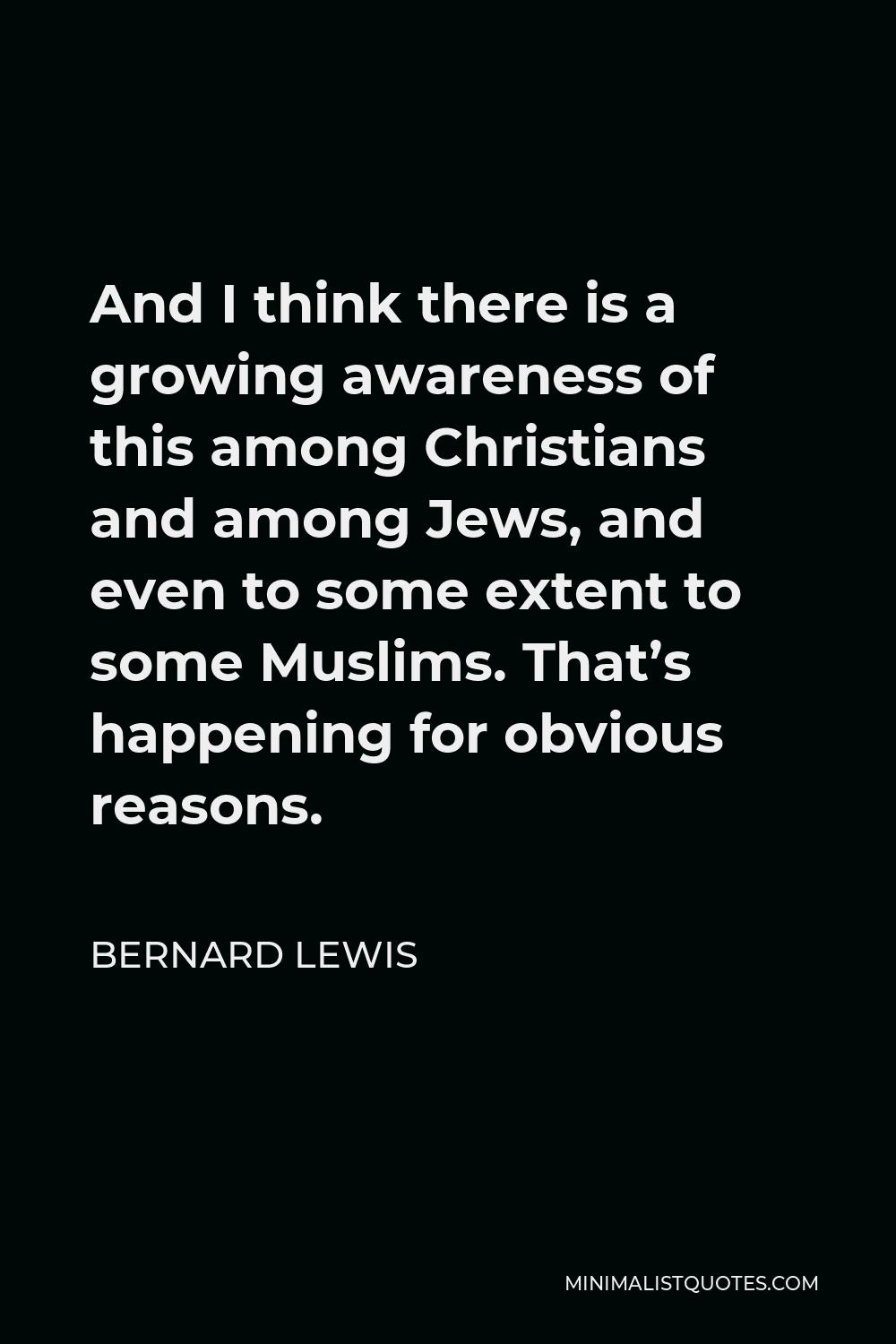
And I think there is a growing awareness of this among Christians and among Jews, and even to some extent to some Muslims. That’s happening for obvious reasons.
BERNARD LEWIS -





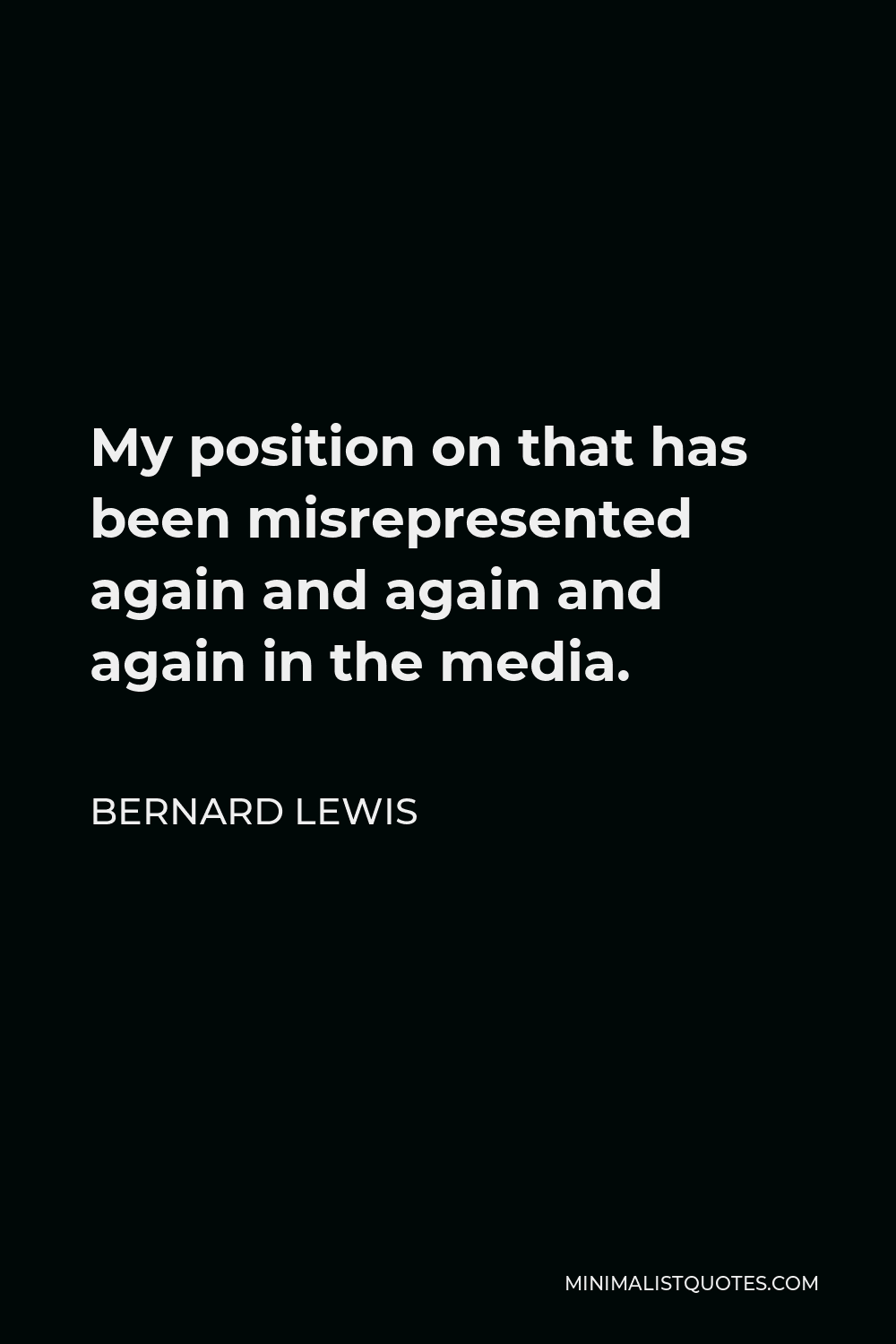
My position on that has been misrepresented again and again and again in the media.
BERNARD LEWIS -





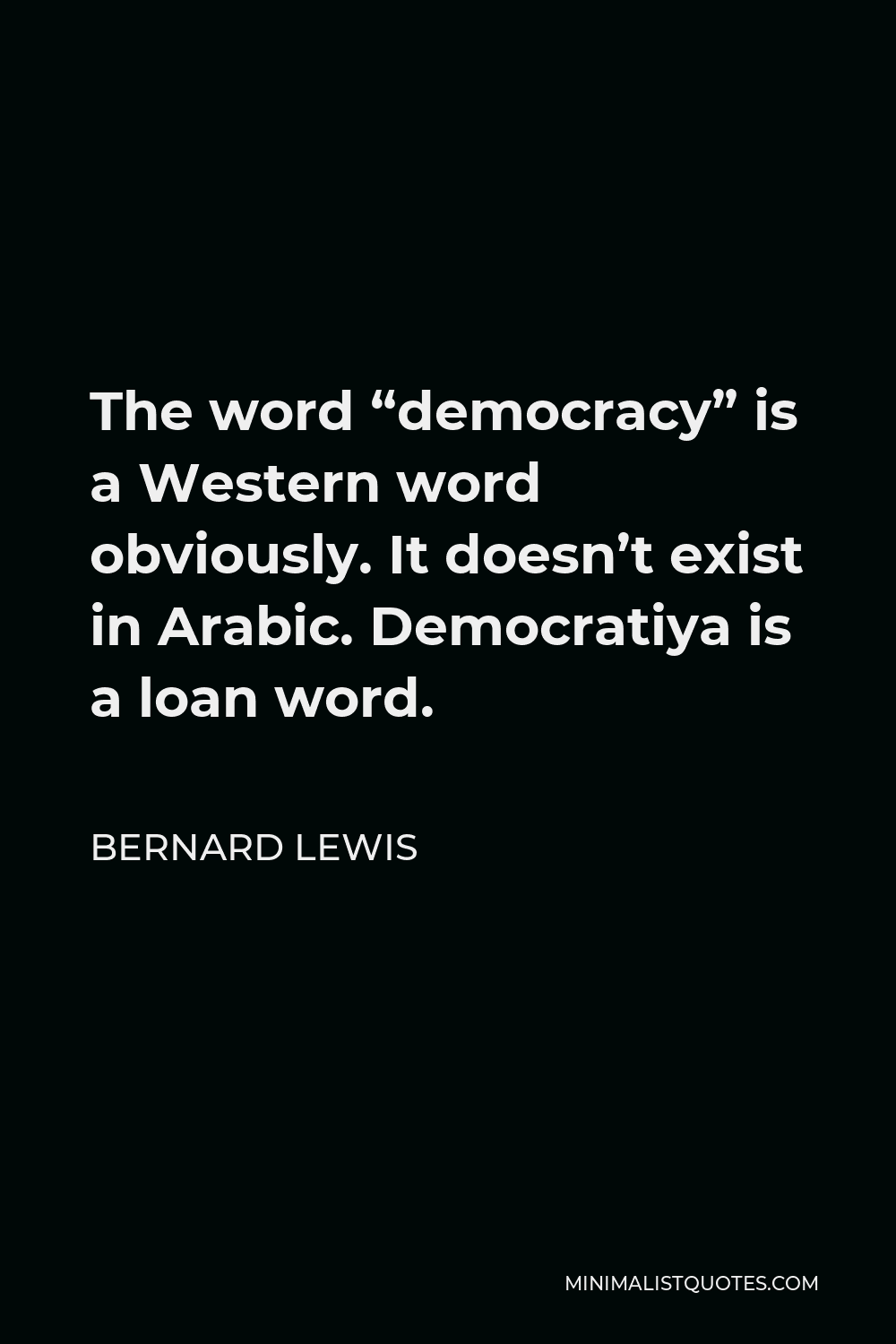
The word “democracy” is a Western word obviously. It doesn’t exist in Arabic. Democratiya is a loan word.
BERNARD LEWIS -





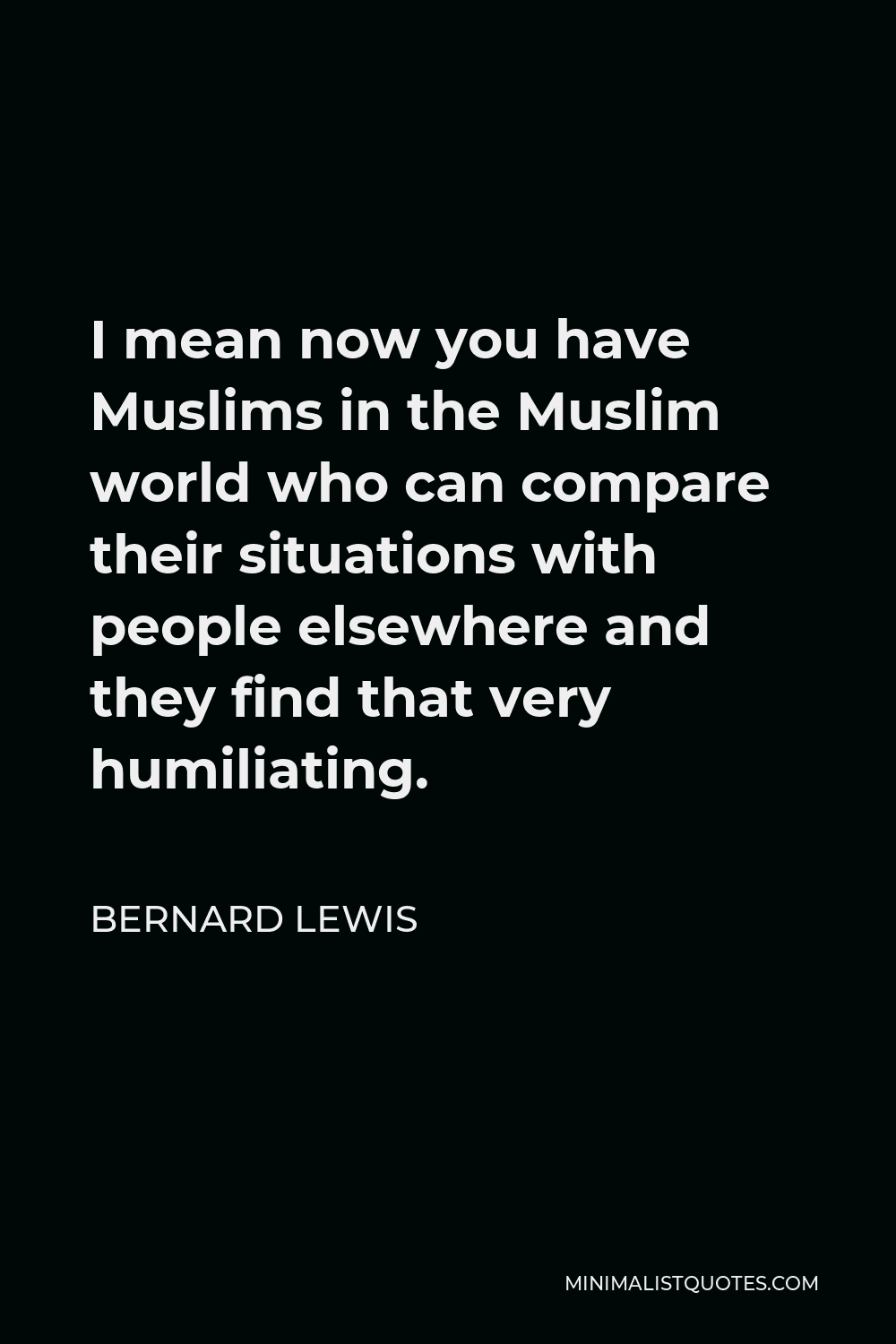
I mean now you have Muslims in the Muslim world who can compare their situations with people elsewhere and they find that very humiliating.
BERNARD LEWIS -





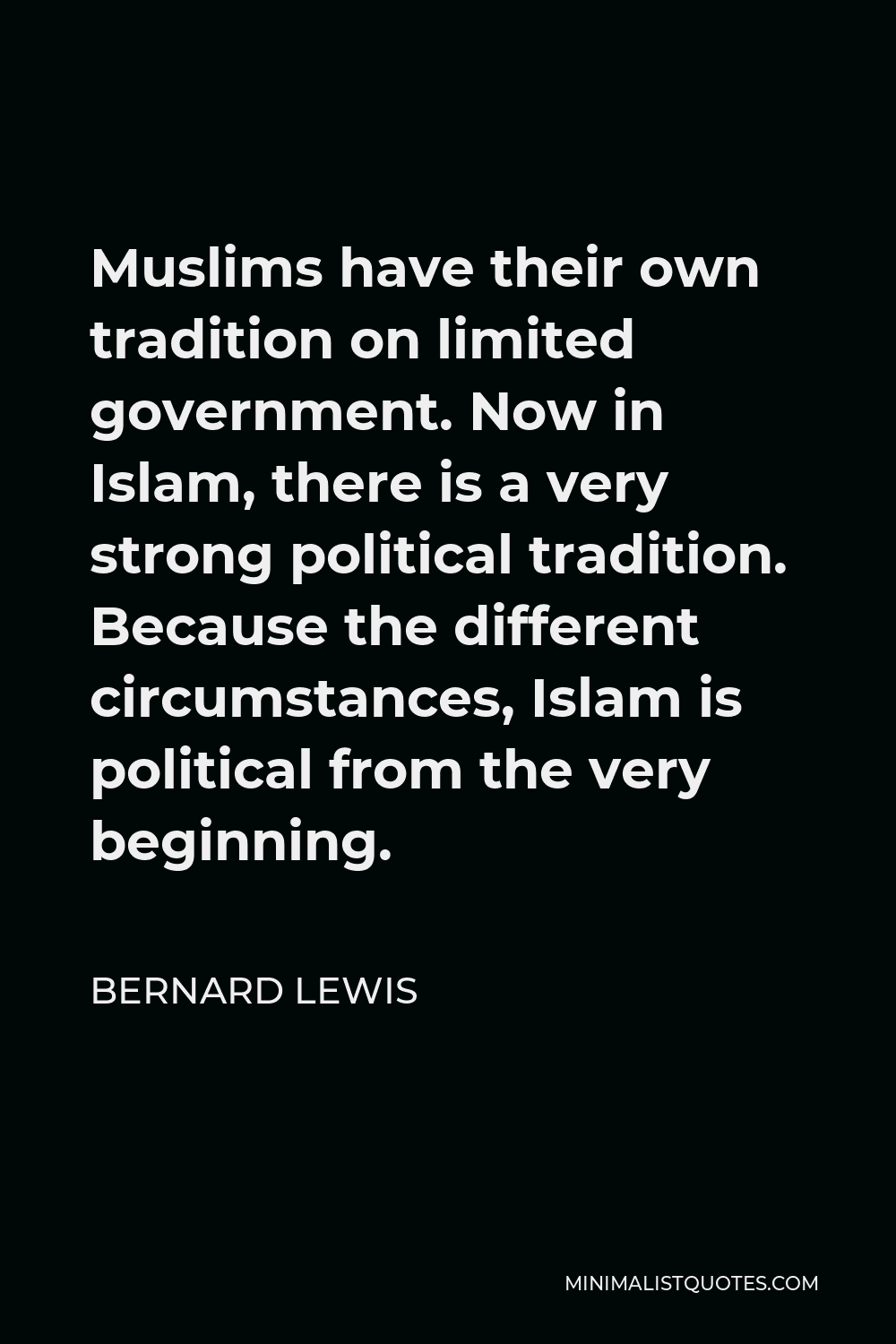
Muslims have their own tradition on limited government. Now in Islam, there is a very strong political tradition. Because the different circumstances, Islam is political from the very beginning.
BERNARD LEWIS -





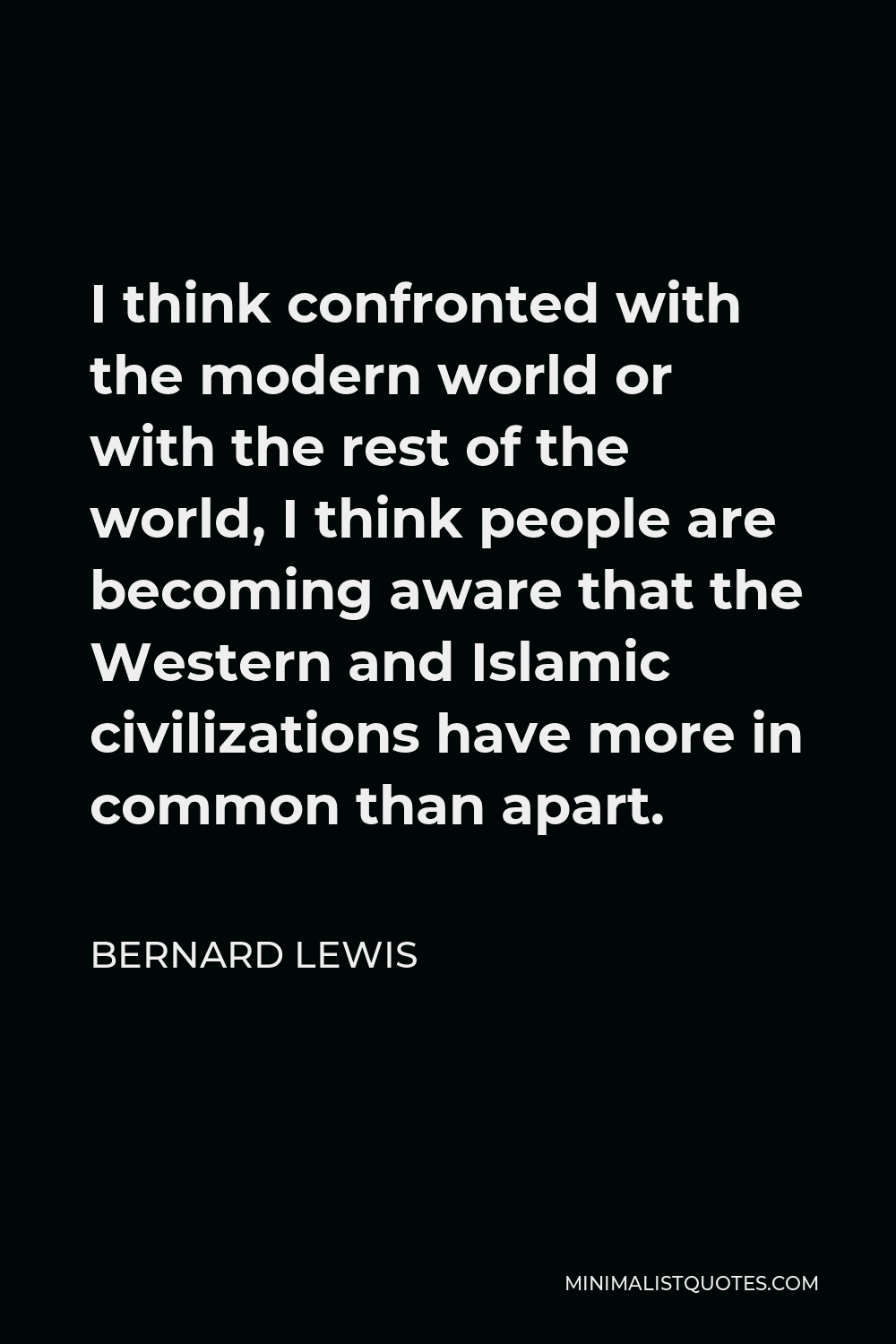
I think confronted with the modern world or with the rest of the world, I think people are becoming aware that the Western and Islamic civilizations have more in common than apart.
BERNARD LEWIS
